GROWING UP UNTOUCHABLE
IN INDIA
GROWING UP
UNTOUCHABLE IN INDIA
A Dalit Autobiography
VASANT MOON
Translated from the Marathi
by
Gail Omvedt
With an Introduction
by
Eleanor Zelliot
ROWMAN & LITTLEFIELD PUBLISHERS, INC.
Lanham Boulder New York Oxford
ROWMAN & LITTLEFIELD PUBLISHERS, INC.
Published in the United States of America
by Rowman & Littlefield Publishers, Inc.
A wholly owned subsidiary of The Rowman & Littlefield Publishing Group, Inc.
4501 Forbes Boulevard, Suite 200, Lanham, Maryland 20706
www.rowmanlittlefield.com
PO Box 317
Oxford
0X2 9RU, UK
Copyright 2000 by Rowman & Littlefield Publishers, Inc.
First published by Granthali in Mumbai as Vasti (1995).
All rights reserved. No part of this publication may be reproduced, stored in a retrieval system, or transmitted in any form or by any means, electronic, mechanical, photocopying, recording, or otherwise, without the prior permission of the publisher.
British Library Cataloguing in Publication Information Available
Library of Congress Cataloging-in-Publication Data
Moon, Vasant.
[Vasti. English.]
Growing up untouchable in India : a Dalit autobiography / Vasant Moon ; translated by Gail Omvedt ; with an introduction by Eleanor Zelliot.
p. cm. (Asian voices)
ISBN 0-7425-0880-3 (alk. paper) ISBN 0-7425-0881-1 (pbk. : alk. paper)
1. DalitsIndia. 2. IndiaScheduled tribes. 3. Socially handicappedIndia.
I. Omvedt, Gail. II. Title. III. Series.
HT720.M66 2000
Printed in the United States of America
 The paper used in this publication meets the minimum requirements of American National Standard for Information SciencesPermanence of Paper for Printed Library Materials, ANSI/NISO Z39.481992.
The paper used in this publication meets the minimum requirements of American National Standard for Information SciencesPermanence of Paper for Printed Library Materials, ANSI/NISO Z39.481992.
To my late mother, Purnabai,
who gave us character, self-confidence, and integrity.
She was not, after all, very educated. But at a time when education up to fourth grade was understood to be a big thing in the Dalit community, when girls were not at all educated, she had studied up to third grade. From that time she began to write her name as Purnabai. But the life of our Mother Purna remained unfulfilled.
During our infancy Purnabais father removed her permanently from the harassment of her drunkard husband. But then she soon lost the shelter of her father and mother. Her lot became one of wandering barefoot and feeding her two small children through performing daily labor. The cracks in her heels vanished only when she died.
At a time when all the children in the neighborhood around her called their mothers Ma, she taught us to call her Mother, like children of the elite. She took care of us, raised us, and taught us the new alphabet: the A of aspiration, the B of Babasaheb, and the C of confidence.
INTRODUCTION
Vasant Moon gave the title of Vasti (neighborhood) to his autobiography, stressing the importance of his community in Nagpur. For this translation, we have changed the title to Growing Up Untouchable in India as more understandable, but the word vasti and the concept of a place of belonging are present throughout this English translation of Moons narrative. There is much in his story of his childhood vasti that would probably be true of any poor urban neighborhood: hunger and deprivation, of course, but also much help from neighbors; a sense of us and them; easy acceptance of petty crime and violence; the saving grace of sports; the even more important factor of an organized group for youngsters led by caring adults; the off-again, on-again aid from relatives; inexplicable cruelty and big-hearted generosity; the women who work at whatever they can find to keep their families alive; and especially the way out and up through education. But in Moons story there is also much that is peculiarly Indian.
First among these Indian elements is the factor of caste, a hierarchical system unrelated to race but based on ancient principles of hereditary pollution and purity, with Brahmans as the most pure and Untouchables as the most polluted. Second in importance, perhaps even first, is the presence of a hero so important he is described as a wave, and surely no despised group has ever had such a meaningful leader as Dr. B. R. (Babasaheb) Ambedkar was (and is) for Indias awakened and ambitious Dalits. Third, in my judgment, is nature. I have never read such a compelling description of Nagpurs heat, even though I have experienced it; nor has the joy of the monsoon rains been often so vividly presented. And surely every tree, every fruit, every nook and cranny of the world in and around the vasti plays an important part in Moons story.
WHAT IS UNTOUCHABILITY?
Vasant Moons story is about a neighborhood, a community of people who are Mahars, Untouchables, at the bottom of Indias caste system. But it is about that group at a time and place when change had taken place and more change was in the air, when the community feeling was stronger than any sense of inferiority, when a child could delight in the wonders of an urban slum. Nevertheless the tale of Moons growing up must be seen as a statement by a man whose caste was polluting, despised, untouchable by higher castes. Moon uses the word Dalit for Untouchables, a fairly recent designation adopted by politicized Untouchables and now current throughout the press. (It must be added that the formalized practice of untouchability was made illegal in the Constitution of India, ratified in 1950, just as the practice of discrimination is illegal here in the United Statesmore about this later.)
The concept of untouchability is one of the most difficult for non-Indians to understand. That there are groups of people who are by birth permanently impure, not to be touched, given the work that is polluting, relegated to the margins of society and yet necessary for the maintenance of that societythis concept bears some relation to racial or ethnic divisions elsewhere, but is far more systematized in the culture of India. The caste system as it exists today in groups of graded inequality, with Brahmans as most ritually pure and some four hundred specific castes permanently at the bottom, has probably been firmly established for over a thousand years. It continues today, although usually in less blatant form and with much effort on the part of government to make up for past injustice through reservations, Indias version of affirmative action.
In spite of this hierarchical system, India also has a tradition of equality and has seen numerous reform efforts. The best known is Mohandas K. Gandhis attempt to give Untouchables some respect with the name Harijan, people of God, a name rejected as patronizing by politically aware Untouchables. Moons discussion of the refusal to be named Harijan even at the cost of being denied a scholarship and his vivid description of the boycotting of Gandhi will shock those who think of Gandhi as the friend of Untouchables. This rejection must be seen in the context of Gandhis denying Untouchables the right to the political power that Dr. Ambedkar felt was essential for progress. (See Pune Pact in the glossary for the source of the Gandhi-Ambedkar conflict.) Ideologically, change of heart on the part of caste Hindus, which was the Gandhian way, versus legal rights and political power for the group on the bottom, which was Ambedkars plea, is a dichotomy that has relevance in American culture. However, Moon clearly brings out the kindness of several Gandhian teachers. And the strong strain of reform may be seen in all the high-caste teachers who teach without prejudice and all the famous writers who respond to Moons invitation to come to the vasti.
Next page

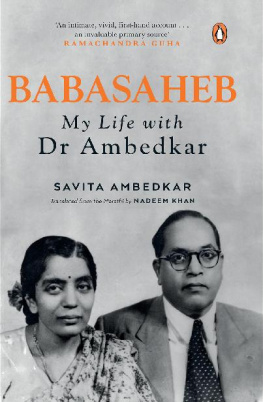
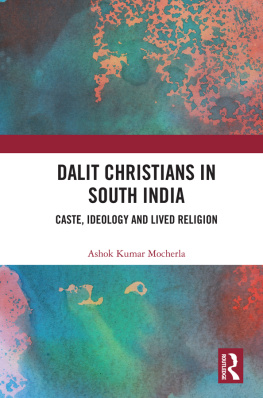
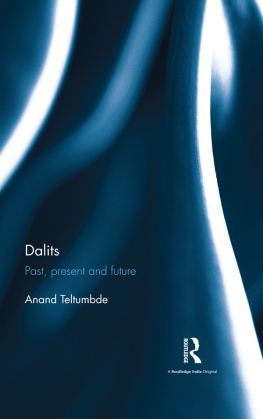
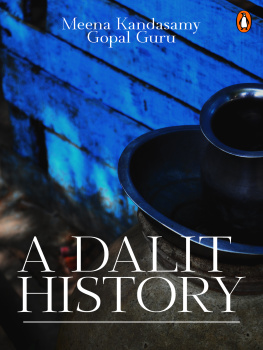
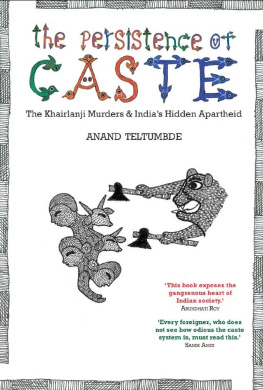
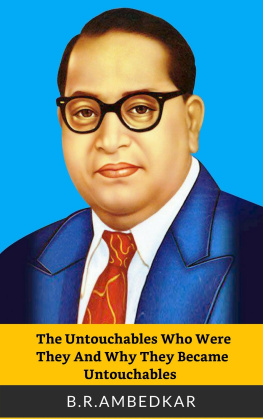

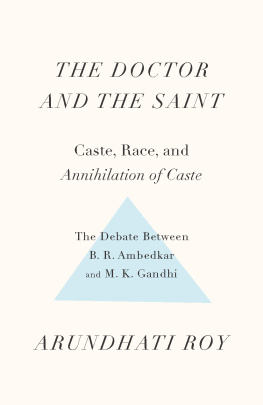

 The paper used in this publication meets the minimum requirements of American National Standard for Information SciencesPermanence of Paper for Printed Library Materials, ANSI/NISO Z39.481992.
The paper used in this publication meets the minimum requirements of American National Standard for Information SciencesPermanence of Paper for Printed Library Materials, ANSI/NISO Z39.481992.